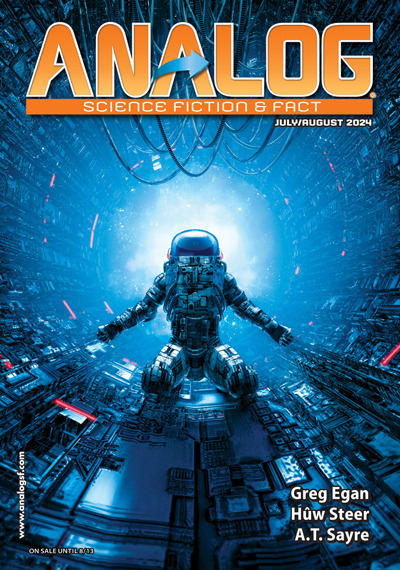Vouch For Me by Greg Egan
I always look forward to a new story by the Australian author Greg Egan and he doesn’t disappoints here. In a near future a virus leaves people with retrograde amnesia, which spurs a wealth of various technologies for recording your memories. The story dives into some interesting philosophical questions on the definition of personhood and how to securely transfer information about who you are to yourself.

We follow Julia and her family, her husband Patrick and their Zoe, are all diagnosed with the virus HHV-10. It is dormant and has about 10% risk of activating in a given year, which will then induce retrograde amnesia. People won’t remember who they were or anybody else, but will retain general language and knowledge.
This has created a huge demand for various ways to “backup” a personality, allowing people a chance to get back to something resembling their previous self after the disease takes their memories. Some retort to written physical, others to various technological gadgets and advanced recording devices. All these comes with various security and privacy concerns, and a general fear of who might manipulate the data afterwards. Could be pretty convenient to modify or erase some unwanted parts of ones personal journal, or perhaps intentional leaving out stuff about yourself. Who can you trust in such a scenario where you have to convince a future self that doesn’t remember anything?
Julia is sort of the paranoid type. She can think of all kinds of ways the conventional methods can be circumvented, so she sets out to develop a fool proof way to verify ones own journal after getting amnesia. But as is the philosophical culprit of this story, can all problems be solved with technological fail-safes?
I like how fairly straight forward this story is both in plot and the themes Egan are exploring here. There is a lot to think about here, that is very relevant with today’s issues digital privacy. The story ends rather abruptly, which annoyed me a bit at first, but it is actually quite fitting for the whole point of the story. An absolute contender for my picks for one of the best stories of the year.
Read in Analog July/August 2024
Rating: 5